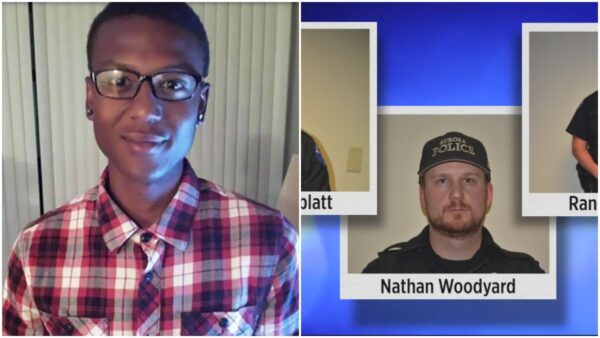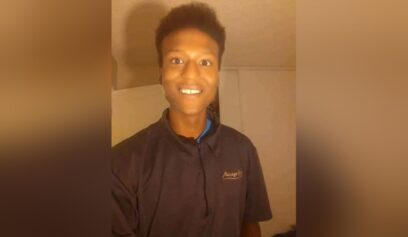Five former Colorado police officers and paramedics will stand trial for the death of a young massage therapist, accosted by law enforcement on his way home from the store in 2019. A judge has ruled there was ample evidence on the side of the prosecution to proceed with criminal charges despite an earlier judge saying there was not.

On Monday, July 18, Judge Priscilla Loew from the 17th Judicial District ruled that Nathan Woodyard, Randy Roedema, and Jason Rosenblatt from the Aurora Police Department, as well as Peter Cichuniec and Jeremy Cooper from the town’s emergency response, should be tried in court on a combined 32 counts for their involvement with Elijah McClain’s death in August of 2019, EMS1 reports.
All men were previously indicted by a grand jury in September of 2021, but never went to trial after an Arapahoe County judge found the evidence against them would not hold up in court.
Loew disagreed.
Upon reviewing thousands of pages of testimony and evidence, Loew declared the case should go forward.
The judge wrote in her order, “After reviewing the grand jury materials, the court finds, when viewing the evidence in the light most favorable to the people and with all inferences in favor of the prosecution, there is sufficient evidence to establish probable cause for each of the counts listed in the grand jury indictment filed with the court on Sept. 1.”
The men are scheduled for an in-person arraignment in court on Friday, Aug. 12, almost three years after McClain’s premature demise, court documents state.
On Aug. 24, 2019, the 23-year-old, who suffered from a blood circulation disorder, was returning home from shopping at a local convenience store for a bottle of ice tea. Someone reported that a person who looked sketchy was walking in the neighborhood, and when police responded, they believed McClain, who was wearing a ski mask, was their suspect.
Woodyard, Roedema, and Rosenblatt confronted McClain around 10:30 p.m. with questions about being out, and he nervously answered telling them he had no gun and wanted his personal space. The incident was captured on their bodycams.
“I am an introvert, please respect the boundaries that I am speaking. Leave me alone,” McClain is heard saying on their footage.
Unhappy with his answers, the interaction escalated. One officer even threatened to sic his dog on McClain if he did not comply with their demands, despite him not committing any crime. His resistance resulted in the cops using two illegal carotid chokeholds on McClain twice as they tried to subdue him. The young man passed out but regained consciousness briefly before vomiting.
Cichuniec and Cooper, two paramedics, arrived on the scene and quickly assessed the situation. It took about 15 minutes for them to decide their course of action. In their speed, they misdiagnosed him with “excited delirium,” and injected the 143-pound man with 500 mg of ketamine — a dose that would have been excessive for a 200-pound person.
As a result, McClain lost his pulse, stopped breathing, and went into cardiac arrest. After being taken to the hospital, he lay in a coma for four days before a physician declared him brain dead.
In November 2021, the McClain family arrived at a historic $15 million settlement with the city of Aurora after filing a civil rights lawsuit over McClain’s arrest that demonstrated excessive force which led to his untimely death. Records show this was the highest settlement the Aurora police department had ever established with anyone.
Still, the family wants all five individuals to face criminal charges, including manslaughter and criminally negligent homicide.
Loew’s decision gives to Sheheen McClain, the mother of the deceased, and her relatives hope that these men will serve time for what they did. The family’s attorney, Iris Halpern stated accountability is important, as their actions impacted more than just the life now lost because of them.
“We’ve been standing by the family throughout the case and the pain they’ve suffered,” she told ABC News. “These are real humans with loved ones and this issue impacts not only the victim but those around them in the aftermath.”
Both the Aurora Police Department and the city’s EMS declined to comment on the judge’s decision.


